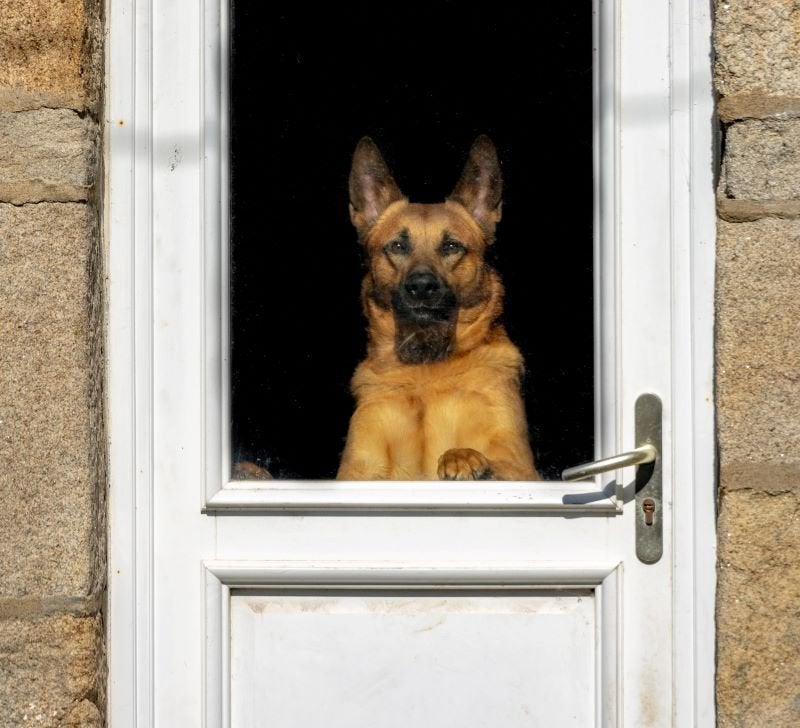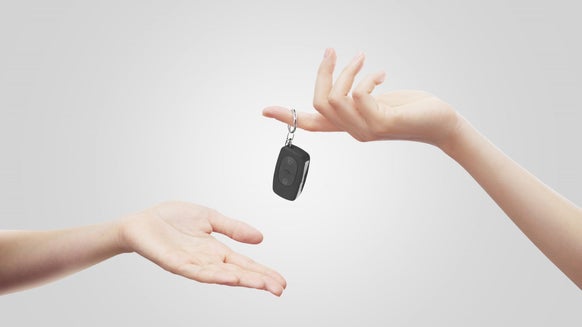Going Back To Work If You Have Pets- What To Expect

Going Back To Work If You Have Pets- What To Expect
Spending every day at home with our pets for the past few months has been both entertaining and comforting. We may have lost the freedom to socialise with humans during lockdown, however it’s been the exact opposite for our animals. They will have loved and actually benefitted from our companionship and daily interaction during these times.
Now that we are slowly trying to ease back into our normal lives which includes going back into the workplace, we may start to notice behavioural changes in our four-legged friends. We cannot simply assume that they’ll understand why things are changing once again, as they will have adjusted to having us around 24/7. Once this is taken away when work commitments resume, they can respond in many ways.
If you’re lucky, you may have been given weeks or months’ notice for returning back to work which makes life a whole lot easier. You’re even luckier if you’re the owner of a cat or dog that reverts back to old routines with no hassle. For those with less time to prepare or fears that their pets may struggle, we'll talk about how you can learn what it's like to leave behind our furry family members and how to manage their reactions. If you're worried about not spending enough time with your dog for a limited amount of time, it would be good to look for dog sitters in the uk.

Going back to work? Look out for these distress signals
- Constant barking, meowing, whining
- Intense pacing and restlessness
- Excessive salivation and panting
- Scratching or digging at doors or windows
- Destruction of belongings or chewing of items you have recently touched
- Vomiting
- Overgrooming
- Urinating or defecating indoors
- When you come home, your pet may follow you around the house constantly
- Hiding or crying when you make signs that you plan to leave the house
- Ignoring food or loss of appetite
1. Change your lockdown routine
Now that there are no limits to how often you can leave the house, increase the number of daily outings you make, and stay out for longer each time. Whether that’s going for a walk, a bike ride, visiting a friend at a social distance, get out of the house away from your pet. This will help them to remember what’s it like to have independence from their owners whilst also recognising that you’ll always come home.
If your dog was used to you wearing a particular coat when you left for work, or maybe you left them a specific treat as you headed out the door, start doing these small gestures again now. Your pet will begin to normalise your new routine so that it’s less shocking when you go back to the workplace.
With normal sleeping and eating routines out the window during lockdown, your pet's schedule will have no doubt changed as well. Now, it’s time to revert back to their old walking and meal times as if it was a working week. If you walked your dog at 5 pm after a busy day in the office, start doing that again as a form of preparation. Feed your cat at the time you’d usually get back from work instead of whenever is convenient whilst you’re at home- this could be 4 to 5 times without you even realising!

2. Separation anxiety
Some pets may find the mental stress of change too much to handle. When you grab your briefcase, tie up your work shoes, or do your makeup, your pet may seem in a slightly depressed state as they know what this means- they are going to have a stressful and anxious day alone at home.
Fortunately, there are helpful signs to look out for, even if you’ve been told you’re going back to work tomorrow and have no time to prepare. To ensure this doesn’t turn into unmanageable behaviour, it is important to read up on separation anxiety in pets. Luckily, we already have a blog all about this form of anxiety that a dog, in particular, undergoes whenever it is left alone. You can read this here.

3. Encourage independence
Start initiating activities that your pet can complete on their own without needing approval or recognition from you as an owner. Some examples for dogs include occupying them with chew toys and hiding treats in various places around the home, and also food puzzles for cats. For a cat to feel less stressed about you leaving, they need to be distracted by simple activities around the house that brings out their predatorial instinct. Some toys that initiate this include fishing poles with a mouse on the end or a wand toy.

4. Avoid confusion
Whatever regime you choose, keep it regular and consistent. Don’t make any major changes all at once, but instead keep the transition gradual. There is no quick solution to adjusting to our new normal, as we've already experienced with lockdown. To avoid misunderstandings between you and your four-legged friend, try not to make things too complicated. There is no need to start ignoring or not acknowledging our pets in an attempt to prepare them as this will only make the feeling of rejection worse.
We as pet owners know better than anyone that they like to keep things simple, light, and positive. If you slowly but surely change your pet’s schedule to match what it’ll eventually be, this should ensure a smooth transition to a new routine without the feeling of anxiety and confusion.

At the end of the day, pets have emotions too and we as humans just need to work out how to minimise their stress, fear, boredom, or frustration as our routines change. As long as we try our best to prevent negative reactions and instead encourage positive behaviour, then we’ve truly succeeded as pet owners!








